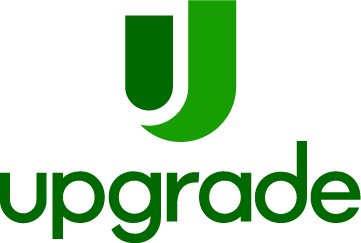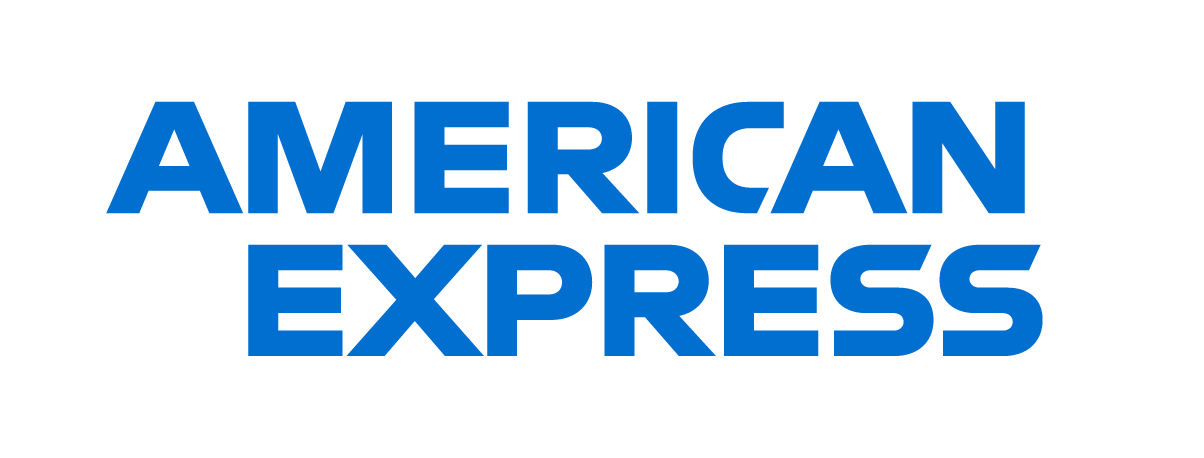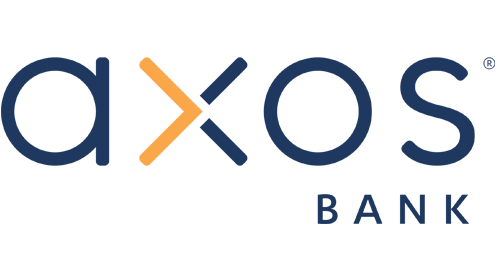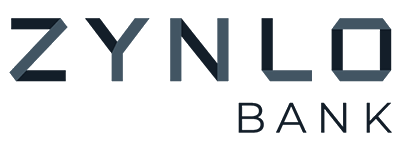11 Best Checking Accounts for April 2025
Many or all of the products on this page are from partners who compensate us when you click to or take an action on their website, but this does not influence our evaluations or ratings. Our opinions are our own.
Strict editorial guidelines to ensure fairness and accuracy in our coverage to help you choose the financial accounts that work best for you. See our criteria for evaluating banks and credit unions.
More than 100 financial institutions surveyed by our team of experts.
More than 50 data points considered for each bank, credit union and banking technology firm (or neobank).
The best banks for checking accounts have low fees, good customer support and free ATMs nearby. Some also offer rewards or earn interest.
In 2025, Discover® Cashback Debit won NerdWallet’s annual award for best overall checking account.
Checking accounts are covered by federal insurance, either through the Federal Deposit Insurance Corp. for banks or through the National Credit Union Administration for credit unions. Federal insurance covers up to $250,000 per depositor, per institution, per account ownership category.
APYs shown are current as of April 18, 2025. All other information is current as of April 1, 2025.
That's on top of any financial institution sign-on bonuses. Get access by joining NerdWallet+.
That's on top of any financial institution sign-on bonuses. Get access by joining NerdWallet+.
Learn moreabout NerdWallet Plus Funded AccountAll eligible products require partner approval. See partner terms and conditions before applying.Best Checking Accounts
| Bank/institution | NerdWallet rating | APY | Bonus | Monthly fee | Overdraft star rating | Learn more |
|---|---|---|---|---|---|---|
5.0/5 | 0.50% With $0 min. balance for APY | Up to $300 Earn up to $300 with direct deposit. Terms apply. | $0 | 5.0/5 | Learn moreon partner's site at SoFi Bank, N.A., Member FDIC | |
5.0/5 | N/A | $360 Up to $360 per year. See website for details. | $0 | 5.0/5 | Learn moreon partner's site at Discover® Bank, Member FDIC | |
5.0/5 | 1.75% With $0 min. balance for APY | N/A | $0 | 4.8/5 | Learn moreon partner's site at nbkc bank, Member FDIC | |
5.0/5 | N/A | N/A | $0 | 3.8/5 | ||
5.0/5 | 1.00% | N/A | $0 | 3.8/5 | ||
5.0/5 | 0.51% With $1,500 min. balance for APY | N/A | $0 | 4.8/5 | ||
5.0/5 | 1.00% With $0 min. balance for APY | N/A | $0 | 4.4/5 | ||
5.0/5 | 1.75% With $0 min. balance for APY | N/A | $0 | 4.2/5 | ||
5.0/5 | 2.00% | N/A | $0 | 3.8/5 | ||
5.0/5 | 0.01% With $0.01 min. balance for APY | N/A | $0 | 4.3/5 | ||
5.0/5 | 3.50% With $0.01 min. balance for APY | N/A | $0 | 3.8/5 |
Our pick for
Overdraft Fee Avoidance
APY
0.50%
With $0 min. balance for APY
Bonus
Up to $300
Earn up to $300 with direct deposit. Terms apply.
Monthly fee
$0
Overdraft star rating
5.0/5
Our pick for
Overall Checking Account
APY
N/A
Bonus
$360
Up to $360 per year. See website for details.
Monthly fee
$0
Overdraft star rating
5.0/5
Our pick for
Checking Interest Rate
APY
1.75%
With $0 min. balance for APY
Bonus
N/A
Monthly fee
$0
Overdraft star rating
4.8/5
APY
1.75%
With $0 min. balance for APY
Bonus
N/A
Monthly fee
$0
Overdraft star rating
4.2/5
APY
3.50%
With $0.01 min. balance for APY
Bonus
N/A
Monthly fee
$0
Overdraft star rating
3.8/5
Our pick for
Cash-Back Rewards
APY
N/A
Bonus
N/A
Monthly fee
$0
Overdraft star rating
3.8/5
Our pick for
Customer Experience
APY
1.00%
Bonus
N/A
Monthly fee
$0
Overdraft star rating
3.8/5
Our pick for
ATM Access
APY
0.51%
With $1,500 min. balance for APY
Bonus
N/A
Monthly fee
$0
Overdraft star rating
4.8/5
Our pick for
Checking/Savings Combo
APY
1.00%
With $0 min. balance for APY
Bonus
N/A
Monthly fee
$0
Overdraft star rating
4.4/5
APY
2.00%
Bonus
N/A
Monthly fee
$0
Overdraft star rating
3.8/5
Our pick for
Monthly Bonuses
APY
0.01%
With $0.01 min. balance for APY
Bonus
N/A
Monthly fee
$0
Overdraft star rating
4.3/5
Our Nerds say:
"The best checking accounts are designed to be used for all of your regular purchases and transactions, so make sure to pick one that has all of the features that matter to you.
"If you need a flexible overdraft program, pick a bank that has low or no overdraft fees or a buffer or forgiveness program. If you plan to go with an online bank, make sure it has great remote customer service options and an accessible ATM network. And lastly, even though checking accounts aren’t usually known for great interest rates, there are still plenty of accounts that offer a solid return on your money. You can also find rewards checking accounts that offer cash back on your spending."




- Chanelle Bessette, NerdWallet banking writer
Requirements to open a checking account
Banks typically require some form of valid government-issued photo identification along with basic details about yourself, including your birthdate, Social Security number, and contact information. You may also need to make a minimum opening deposit depending on the bank.
What to look for in a checking account
When shopping for a checking account, consider factors such as monthly fees, interest rates, overdraft policies, ATM fees and access to customer service. Make sure that you’re getting the features and services you want from your bank.
See the table lower down on the page to get an idea of what kinds of features the best checking accounts offer.
The pros of checking accounts
Easy access to your money. Checking accounts are designed to be added to and withdrawn from frequently. Most banks come with mobile apps and desktop login options so that you can handle your banking without needing to go to a branch. As a bank customer, you will usually have access to an ATM network as well, either through your bank or through a partner network.
Debit cards and checkwriting. Debit card and checkwriting both allow you to make transactions without needing to have cash on hand.
Security and federal insurance. Apart from a bank’s physical security, a chartered bank will also come with insurance from the Federal Deposit Insurance Corp. (FDIC) to protect your money in case the bank goes out of business. Online banks, including those listed on this page, also offer FDIC insurance.
Convenient services like bill pay and money transfers. Many banks allow you to set up bill pay services from your checking account, and you might also have access to a money transfer service like Zelle through your bank.
The cons of checking accounts
Lower interest rates than other accounts. Though some checking accounts offer strong interest rates, you’ll generally find higher interest rates through savings accounts and certificates of deposit.
Some accounts come with high fees. Some checking accounts come with monthly fees, minimum balance fees, and overdraft fees, so be sure to look at what a bank charges before you open an account.
Account features | Standard checking accounts | The best checking accounts |
Do checking accounts pay interest? | Sometimes; typically minimal. | Usually a solid rate, sometimes with a bonus or cash back instead. |
Common fees |
|
|
Typical features |
|
|
Other benefits |
|
|

What's the best checking account for me?
When choosing a new checking account, take a close look at fees, branch and ATM accessibility, and interest rate. Also consider perks such as early access to direct deposits. People who do online banking should select an institution that offers a good website along with a mobile app that lets them deposit checks remotely.
As a rule, it’s a good idea to avoid checking accounts that charge — and don’t allow you to waive — fees. The rule remains true whether choosing a teen checking account, a college bank account or any checking account.
What are some alternatives to checking accounts?
Checking accounts are meant to be used for daily spending and ideally come with some interest or cash back, though you’re more likely to get a higher interest rate with a cash management account, certificate of deposit or high-yield savings account. Here are some alternatives to checking accounts, both for daily spending and for higher interest rates.
Prepaid debit cards. Prepaid debit cards are like regular debit cards, but instead of being linked to a checking account, you load it with cash in advance. This helps you avoid overdraft fees because you can only spend the amount that you’ve loaded onto the card. It doesn’t require any kind of credit check, so they’re easy to get.
Second chance checking accounts. If you’ve been reported to ChexSystems, a second chance checking account can help you rebuild your banking history.
Cash management accounts. Cash management accounts are offered by brokerages and give you a place to keep uninvested cash. Some act like checking accounts and come with a debit card for spending.
Savings accounts. If you’re after a higher interest rate on cash that you don’t plan to use in the near future, a high-yield savings account can be a great place to park your money.
Certificates of deposit. A high-yield CD can offer you a guaranteed rate of return on your money, but the trade-off is that you let it stay in the CD for the full term length. If you try to withdraw from a CD too early, you could become subject to a penalty.
Should I have more than one checking account?
Usually there won’t be many downsides to keeping multiple checking accounts open as long as you can meet the requirements of those accounts to avoid fees.
The number of checking accounts you should have is based on your situation. If you’re single, for example, you may be fine with just one checking account. If you’re married, you may want to have a personal account and a joint account that you share with your spouse.
There are also several accounts that offer bonuses and promotions for opening an account, so if you’re able to juggle the requirements, you could make some extra cash by opening multiple accounts. You also may want to consider opening multiple checking accounts at different institutions for different uses, such as keeping an account at a provider that works well for international travel if you go out of the country a lot, or keeping a checking account open with the bank that handles your mortgage for faster payment transfers.
Compare the other types of best checking accounts: | ||
Last updated on April 18, 2025
Methodology
We took a close look at over 100 financial institutions and financial service providers, including the largest U.S. banks based on assets, internet search traffic and other factors; the nation’s largest credit unions, based on assets and membership; and other notable and/or emerging players in the industry. We rated them on criteria including annual percentage yields, minimum balances, fees, digital experience and more.
Financial institutions and providers surveyed are: Affirm, All America Bank, Alliant Credit Union, Ally Bank, Amalgamated Bank, America First Credit Union, American Express National Bank, Andrews Federal Credit Union, Associated Bank, Axos Bank, Bank of America, Bank5 Connect, Barclays, Bask Bank, BMO, BMO Alto, Boeing Employees Credit Union, Bread Savings™, BrioDirect, Capital One, Carver Federal Savings Bank, CFG Bank, Charles Schwab Bank, Chase, Chime, CIBC U.S., CIT Bank, Citibank, Citizens, Citizens Bank, City First Bank, Climate First Bank, Commerce Bank, Community First Credit Union of Florida, ConnectOne Bank, Connexus Credit Union, Consumers Credit Union, Current, Customers Bank, Delta Community Credit Union, Discover® Bank, E*TRADE, EverBank, Fifth Third Bank, First Foundation, First Internet Bank, First National Bank, First Tech Federal Credit Union, Flagstar Bank, FNBO Direct, Forbright Bank, FourLeaf Federal Credit Union, Global Credit Union, GO2bank, Golden 1 Credit Union, Greenwood, Hope Credit Union, Huntington Bank, Industrial Bank, Ivy Bank, Jenius Bank, KeyBank, Lake Michigan Credit Union, Laurel Road Bank, LendingClub Bank, Liberty Bank, Live Oak Bank, M&T Bank, Marcus by Goldman Sachs, My Banking Direct, NASA Federal Credit Union, Navy Federal Credit Union, NBKC, Newtek Bank, One, OneUnited Bank, Pentagon Federal Credit Union, PNC, Poppy Bank, Popular Direct, Quontic Bank, Regions Bank, Revolut, Salem Five Direct, Sallie Mae Bank, Santander Bank, SchoolsFirst Federal Credit Union, Security Service Federal Credit Union, Securityplus Federal Credit Union, Self-Help Credit Union, Service Credit Union, SoFi, State Employees’ Credit Union of North Carolina, Suncoast Credit Union, Synchrony Bank, TAB Bank, TD Bank, Truist Bank, U.S. Bank, UFB Direct, Upgrade, USAA Bank, Varo, Vio Bank, Wells Fargo, Western Alliance Bank and Zynlo Bank.
NerdWallet's Best Checking Accounts for April 2025
- SoFi Checking and Savings: Best for Overdraft Fee Avoidance
- Discover® Cashback Debit: Best for Overall Checking Account
- nbkc bank Everything Account: Best for Checking Interest Rate
- American Express Rewards Checking: Best for Customer Experience
- Axos ONE® Checking: Best for ATM Access
- Bask Bank Interest Checking: Best for Checking/Savings Combo
- Upgrade - Rewards Checking Plus: Best for Cash-Back Rewards
- Connexus Credit Union Xtraordinary Checking: Best for Checking Interest Rate
- ZYNLO Bank More Spending Account: Best for Checking/Savings Combo
- Laurel Road Loyalty Checking: Best for Monthly Bonuses
- TAB Spend: Best for Checking Interest Rate
Frequently asked questions
A checking account is an account offered by a bank, nonbank or credit union that allows a customer to deposit and withdraw money as well as make transactions through electronic payment, check, money order and/or with a debit card.
Here are NerdWallet's picks for the best checking accounts.
Some do, but interest rates are typically low for checking accounts. If you’re looking for a high annual percentage yield, you may want to consider one of NerdWallet’s picks for a high-yield savings account or a CD with a high rate instead.
Prepaid debit cards and checking accounts are similar in that you have an account with a certain balance to make purchases. Most prepaid debit cards, however, have no overdraft programs or related fees. Checking accounts traditionally have overdraft services that let you spend more than you have in your account in exchange for what can be steep fees.
Make a list of that account’s recurring deposits and payments. Then, arrange to have future scheduled deposits sent to a new account and to have recurrent bill payments or transfers drawn from that account.
Wait for any outstanding charges or payments to clear the old account. This will take a month or two, and you'll want to ensure that the new account arrangements have kicked in. When that has happened, withdraw any remaining funds from your old bank and get a written confirmation of closure from a bank manager.
Get rid of unnecessary apps and items from your old account. At your convenience, you can remove the bank’s app from your phone and shred any remaining paper checks from the old account.
Some institutions offer sign-up bonuses when you open a new account. To qualify, you typically have to be a new customer and keep your checking account open for at least three months to a year. You will also have to meet other requirements, such as receiving direct deposits or using a linked debit card a certain number of times each month.
It’s possible that you are on the ChexSystems black list. Unpaid bank fees and bounced checks can result in a negative file on ChexSystems, a consumer reporting agency that financial institutions use to evaluate a prospective customer’s banking history. The more blemishes on your report, the less likely that a bank will approve you for a new account.
Here are some steps to take if you need to clear up your ChexSystems record.










